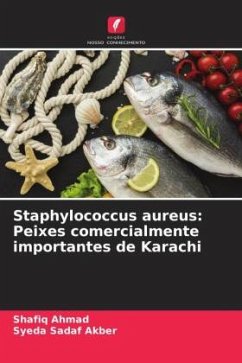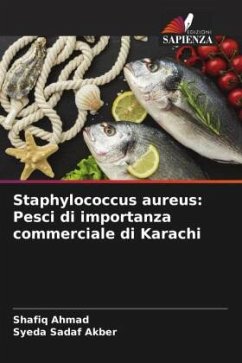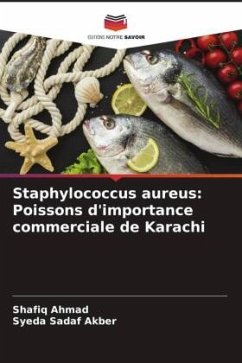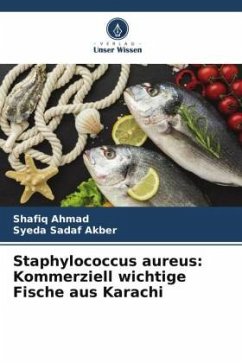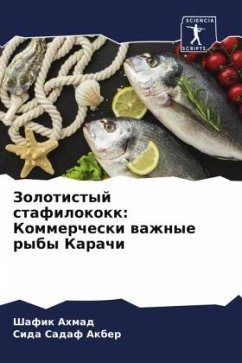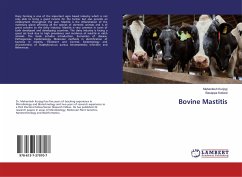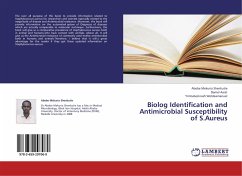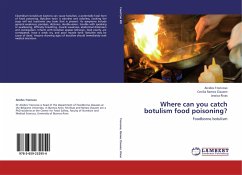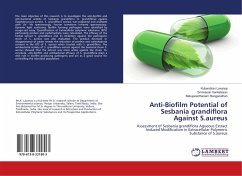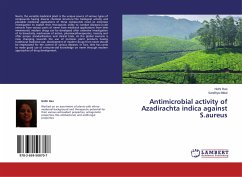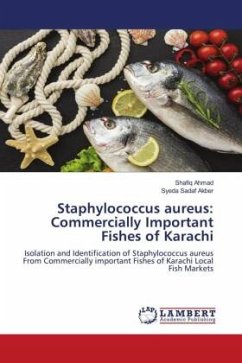
Staphylococcus aureus: Commercially Important Fishes of Karachi
Isolation and Identification of Staphylococcus aureus From Commercially important Fishes of Karachi Local Fish Markets
Versandkostenfrei!
Versandfertig in 6-10 Tagen
29,99 €
inkl. MwSt.

PAYBACK Punkte
15 °P sammeln!
Fish meat has an excellent nutritional value being rich in proteins, vitamins, and unsaturated fatty acids; it is also one of the most important feedstuffs as it is the cheapest source of animal proteins. As it is a highly perishable food item and the biological degradation is faster than vegetables. Therefore, it has to be handled, stored and marketed with extreme care in the minimum possible time. Cross-contamination with harmful agents through bad handling and unhygienic practices causes illness to the consumers. This study was designed to investigate the prevalence of human pathogens espec...
Fish meat has an excellent nutritional value being rich in proteins, vitamins, and unsaturated fatty acids; it is also one of the most important feedstuffs as it is the cheapest source of animal proteins. As it is a highly perishable food item and the biological degradation is faster than vegetables. Therefore, it has to be handled, stored and marketed with extreme care in the minimum possible time. Cross-contamination with harmful agents through bad handling and unhygienic practices causes illness to the consumers. This study was designed to investigate the prevalence of human pathogens especially S. aureus among commercially important fishes locally marketed in Karachi. Out of 180 processed samples, 94 were found positive for S. aureus and 33 were found positive for MRSA. All the S. aureus isolates were then preceded for antibiotic susceptibility towards antibiotics. The present investigation showed that the prevalence of human pathogens such as S. aureus and MRSA were found high which means all the possible sources of bacterial contamination like hygienically handling of fish, its proper transportation, and storage during the fishing and after being marketed must be addressed.



